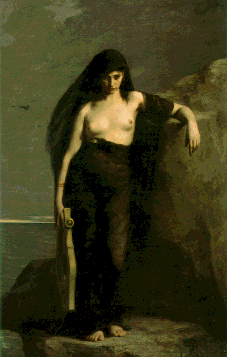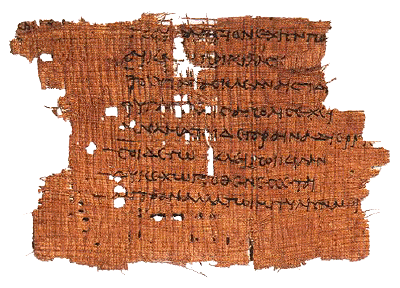I have not had one word from her
Frankly I wish I were dead
When she left, she wept
a great deal; she said to me, "This parting must be
endured, Sappho. I go unwillingly."
I said, "Go, and be happy
but remember (you know
well) whom you leave shackled by love
"If you forget me, think
of our gifts to Aphrodite
and all the loveliness that we shared
"all the violet tiaras,
braided rosebuds, dill and
crocus twined around your young neck
"myrrh poured on your head
and on soft mats girls with
all that they most wished for beside them
"while no voices chanted
choruses without ours,
no woodlot bloomed in spring without song..."
--Translated by Mary Barnard
Source:
http://www.sappho.com/poetry/historical/sappho.html

